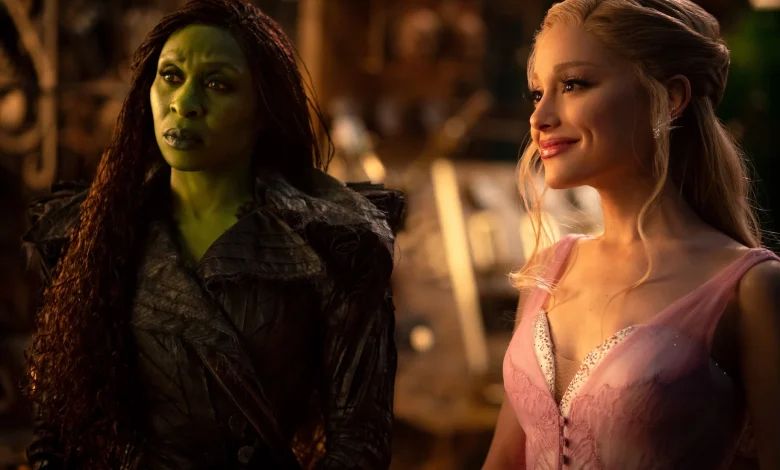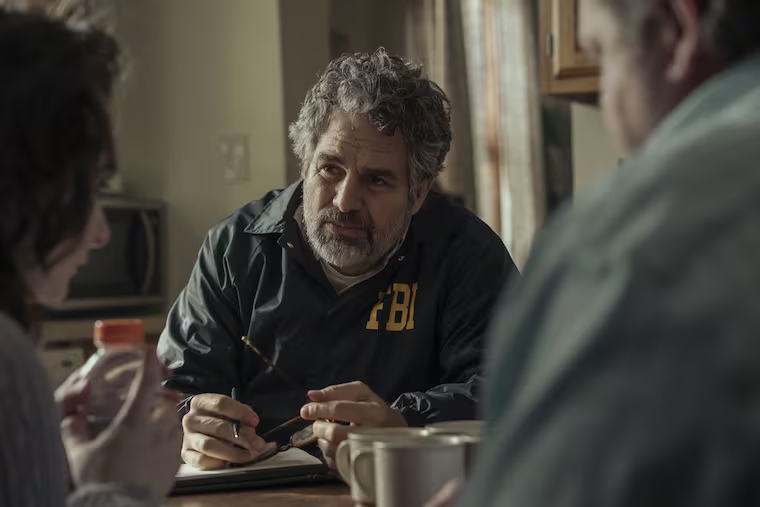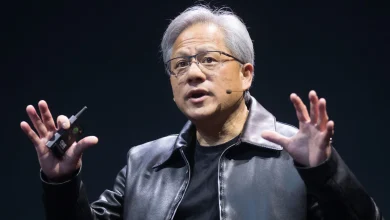The Songs in Wicked: For Good, Explained – Including 2 New Original Songs

Like a comet pulled from orbit as it passes the Sun, we have been forever changed by the music of Wicked.
Since 2003, the Broadway musical about the “true story” of the Wicked Witch of the West has captivated theater kids and grown-ups all over the world. Long before many of us were able to make it to a production of the long-running hit, we knew that soundtrack front to back, with the voices of original stars Idina Menzel and Kristin Chenoweth forever living in our brains and hearts.
Now, with Universal Pictures’ Wicked and Wicked: For Good (the sequel opens wide this weekend!), they’ve been joined by Cynthia Erivo and Ariana Grande, who have brought even more depth to one of pop culture’s greatest, most complicated female friendships. They also introduced the music, the story, and the lesson of individuality and resistance to a whole new generation of kids.
RELATED: 2 New, Original Wicked: For Good Songs Revealed – Here Are all the Details!
Act I of Wicked may include most of the show’s more “popular” songs, including “Popular,” “What Is This Feeling?,” “One Short Day,” and “Defying Gravity,” but Act II contains some moving masterpieces that have us tearing up in anticipation. That includes the sequel’s namesake, the stunning duet “For Good,” and the chilling “No Good Deed.”
Composer Stephen Schwartz wrote two new songs for Wicked: For Good
In addition to the tunes we’ve been memorizing since 2003, original composer Stephen Schwartz penned two new tracks for the film: “No Place Like Home,” sung by Erivo’s Elphaba, and “The Girl in the Bubble,” sung by Grande’s Glinda.
Back when Universal Pictures bought the rights to the novel Wicked by Gregory Maguire, it was Schwartz who convinced executives it should be a musical. In the 2024 documentary Wicked: The Real Story, Schwartz recalled having to work much harder to convince Maguire, who revealed the only five words he needed to hear: “No one mourns the wicked.”
“Schwartz persuaded me he knew why I had written the book,” Maguire said. “The person who wrote the movie script had no clue. Stephen Schwartz knew, and he had my blessing from that moment.”
The composer recruited My So-Called Life creator Winnie Holzman to handle the plot and dialogue for the show, and the duo would later return to work on Wicked and Wicked: For Good. Schwartz said Holzman was great at writing adolescent women, and had a great feel for “how they talk and how they relate.” Holzman was his first choice, and he didn’t have to ask anyone else.
Schwartz did not set out to make a musical about both Glinda and Elphaba, because Glinda’s more of a minor character in the book, but as they developed the show, “We came to realize it’s really the relationship between these two women that’s the heart and core of the story.” And that’s apparent throughout the soundtrack.
RELATED: Wicked Week Is Coming to The Tonight Show Starring Jimmy Fallon (DETAILS)
All the songs in Wicked: For Good
“Every Day More Wicked” – Entire Cast
In the second act, “No one mourns the wicked” turns into the new refrain, “Every day more wicked.” It’s included in the Broadway cast recording as part of “Thank Goodness” and serves as a way to catch the audience up after a time jump. Elphaba is now the Wicked Witch, and everyone is terrified of her. Luckily, they’ve got Glinda the Good Witch to ask for help.
Every day more Wicked / Every day the terror grows / All of Oz is ever on alert / That’s the way with Wicked / Spreading fear where’er she goes / Seeking out new victims she can hurt
“Thank Goodness / I Couldn’t Be Happier” – Glinda and Madame Morrible
Glinda kicks things off in Act II by addressing both the Ozians, who have been manipulated with misinformation by the Wizard, and the audience, who knows what really happened. The song, which introduces Glinda’s “fairytale ending,” is a perfect representation of Glinda’s public perception vs. private.
“The idea is when she is being in front of her public, then she would sing soprano,” Schwartz said in Wicked: The Real Story. “When she’s singing within herself, who she is, then she’s in a chest voice.”
In the second act, Schwartz said Glinda is much more self aware, and “I Couldn’t Be Happier” shows off a more mature side to her, and a battle in her heart over what has happened since Elphaba flew away.
There’s a kind of a sort of cost / There’s a couple of things get lost / There are bridges you cross / You didn’t know you crossed until you crossed
And if that joy, that thrill / Doesn’t thrill like you think it will / Still, with this perfect finale / The cheers and the ballyhoo / Who wouldn’t be happier? / So I couldn’t be happier / Because happy is what happens / When all your dreams come true
“No Place Like Home” – Elphaba
The first of the two new songs is sung by Elphaba, and Erivo told Variety it “speaks to the heart of who Elphaba is.” A snippet was shared during NBC‘s musical special, Wicked: One Wonderful Night, showing Elphaba in a forest, singing to herself.
Grande introduced the sneak peek (which you can stream now on Peacock), explaining that, “It’s about Elphaba’s dedication to protecting Oz, even as she faces rejection from everyone around her.”
Why do I love this place / That’s never loved me? / There’s no place like home
“The Wicked Witch of the East” – Nessarose, Elphaba, Boq
As time has passed and Nessa (Marissa Bode) has been left alone to grieve her father’s death and govern Munchkinland, she’s become bitter and angry. We know the Wicked Witch of the East is the Wicked Witch of the West’s sister, and in the stage musical, this song is a confrontation between the two women about how Elphaba left Nessa behind.
Nessa also knows that Elphaba has real magic and access to the Grimmerie, so she’s frustrated that her sister can’t just “rescue” her.
All of my life I’ve depended on you / And this hideous chair with wheels / Scrounging for scraps of pity to pick up / And longing to kick up my heels
Elphaba’s solution is to enchant a pair of shoes that will allow Nessa to walk, but things are going to be a little different in the movie. Bode uses a wheelchair offscreen as well, and it’s confirmed that “the scene has changed” after conversations with the disabled community. That means the lyrics will likely be different as well, and Schwartz told CBN that the point of Nessa’s story actually has nothing to do with her disability.
“Nessarose fell in love with a guy who doesn’t love her, Boq… because he’s obsessed with Glinda,” he said. “And what she can’t do, and this is fundamental, is let go, let him go. If Nessa had been able to, she would have had a different destiny, a different ending. but she can’t. That’s her tragedy … The point is that we wanted to make it clear that the problem is Nessa’s obsession with Boq, and not the fact that she’s in a wheelchair, which leads to the events that unfold.”
“Wonderful” – The Wizard of Oz, Glinda, Elphaba
This is a rare track on the soundtrack because it’s a “deliberate pastiche number,” Schwartz once said in a Q&A with the Denver Center for the Performing Arts. “It’s sung by the Wizard, who is not from Oz and therefore is meant to sound American.”
The rest of the Wicked score was intended to be less identifiable as Schwartz tried to “come up with a sound that you couldn’t quite place where it was from.”
“Wonderful” sounds the most like a traditional song found in an American musical and allows the Wizard to explain how he rose to power.
Then suddenly I’m here / Respected, worshipped even / Just because the folks in Oz / Needed someone to believe in / Does it surprise you / I got hooked? / And all too soon / What can I say / I got carried away / And not just by balloon
“I’m Not That Girl” (Reprise) – Glinda
In the first movie, Elphaba sang “I’m Not That Girl” as she nursed a crush on Fiyero (Jonathan Bailey) and tried to accept the fact that she would never be who she thought he would want. In Act II, it’s Glinda’s turn to lament that Fiyero doesn’t love her like she loves him.
Don’t wish, don’t start / Wishing only wounds the heart / There’s a girl I know / He loves her so / I’m not that girl
“As Long As You’re Mine” – Elphaba and Fiyero
Elphaba and Fiyero accept their love for one another and their fates in this dark and romantic love song, which also serves as a turning point for Elphaba. It ends with one of the musical’s most iconic lines: “It’s just… for the first time, I feel Wicked.” “Wicked” is the title given to her by the Wizard, and this is the first time she feels like she deserves it.
In a Q&A on his website, Schwartz says the line is supposed to be a bit ambiguous, with a “double (or perhaps triple) meaning” that isn’t entirely negative.
“I think primarily she is feeling guilty about betraying her friendship with Glinda — and she is also feeling guilty about the fact that she doesn’t feel as bad as a ‘non-wicked’ person should about it. I also think there is the implication of the ‘fun’ connotation of the word ‘wicked,’ related to sexuality — the way she says the line in the show is joyous and exhilarated, not gloomy.”
RELATED: How Does Wicked Connect to The Wizard of Oz? The Magical World Explained
“No Good Deed” – Elphaba
“No Good Deed” comes at a particularly heightened, desperate moment in the story, where Elphaba is probably the most wicked of all, spouting off spells from the Grimmerie that end up having major consequences. On his website, Schwartz said the song is meant to be “anxious and intense in feel,” with classical influences like Rachmaninoff. It’s complex and makes use of dissonance, though Schwartz said it was one of the easiest to write. It was even twice as long originally, and had to be cut down.
“The additional material was more generally illustrative of the concept of ‘No good deed goes unpunished,’ including observations based on ideas like ‘Lend money to a friend and you will lose them both’ or ‘Try to settle a quarrel between two people and you’ll end up with both of them angry at you.’ And so on. Fun (and truthful) as it was to philosophize on this topic, it ultimately didn’t serve the show well enough, so I eventually cut all material that wasn’t highly personal to Elphaba.”
And as for the magical chants in the song, Schwartz invented them using “bits of Latin, Italian, and Greek.”
One question haunts and hurts too much, too much to mention / Was I really seeking good or just seeking attention? / Is that all good deeds are when looked at with an ice cold eye? / If that’s all good deeds are, then maybe that’s the reason why / No good deed goes unpunished
“March of the Witch Hunters” – Boq and Cast
Boq (Ethan Slater) gets his moment to shine in “March of the Witch Hunters” as he leads a crowd of Ozians on a mission to kill the Wicked Witch. He’s particularly bitter against both Elphaba and Nessa for what has become of him by this point in the musical, and he declares his anger through song.
It’s due to her I’m made of tin / Her spell made this occur / So for once I’m glad I’m heartless / I’ll be heartless killing her
“The Girl in the Bubble” – Glinda
The second new song in For Good is all about Glinda looking back at what she’s done and what she can still do. When introducing the sneak peek of the song, Erivo called the tune “a poignant solo” that “captures the moment where Glinda decides not to just call herself Good, but to truly become Glinda the Good.”
There’s that beautiful girl / With a beautiful life / Such a beautiful life built on lies / For the girl in the bubble / The pink shiny bubble / isn’t it high time / For her bubble to pop?
“For Good” – Elphaba and Glinda
The movie’s title song is a gorgeous expression of friendship, ripe with double meaning and a devastating undercurrent. “The song ‘For Good’ was, of course, written to try to express the leading characters’ feelings as they are seeing each other for the last time,” Schwartz said.
The title came from Holzman, who said “it should be about how the two of them had changed each other ‘for good,'” and Schwartz went to his daughter Jessica to ask how she and her lifelong best friend would speak to each other if they knew they were never going to see each other again. That conversation led to the first verse of the song.
“For good” can mean both “For the better” and “forever,” giving the song an emotional weight far beyond just two best friends singing about what they mean to each other.
It well may be / That we will never meet again / In this lifetime / So let me say before we part / So much of me / Is made of what I learned from you / You’ll be with me / Like a handprint on my heart
Wicked: For Good opens in theaters this weekend! Check out the official movie website for Wicked: For Good right here.




